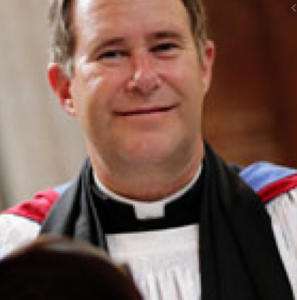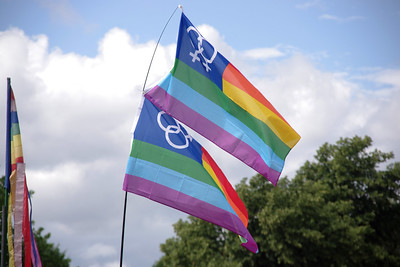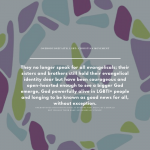A Bournemouth reverend has sent out a clear message to the community that the Church is for ‘all people’ – despite the Church of England’s stance on same-sex marriage.
This comes after the Church of England (C of E) this week maintained their position on same-sex marriage, which is the understanding that marriage is a “lifelong union between one man and one woman”.
“From my perspective, the Church is there for all people,” says Dr Ian Terry of Bournemouth Town Centre Parish.
“Male, female, gay, straight, black, white – all are, in my understanding, loved children of God.”
BUZz: “Male, female, gay, straight, black, white – all are loved children of God,” says Bournemouth Reverend.
Is this view from a local reverend on welcoming the LGBT+ community into church revolutionary? Or nothing new? #buzznews
— Courtney Hill (@wordsbycjh) January 31, 2020

This came after the news that heterosexual couples are now allowed to enter a civil partnership. This was met with pastoral guidance to clergy, in which the C of E stated that it should be treated no more than ‘sexually abstinent friendships’.
Sexual intercourse as an expression of ‘faithful intimacy’ is only proper within heterosexual marriages, stating that anything other than such is falling short of ‘God’s purposes’ for human beings.
While the College of Bishops voted against the proposal to remove the statement, the Church have since issued an apology, recognising ‘division and hurt’ it caused.
Dr Terry is eager to encourage “love and mutual friendship” between all, but was clear that his own personal stance on same-sex marriage isn’t greatly relevant as an employee of the C of E.
“I’m a person under authority and have to keep the the rules of the Church of England,” he revealed.
In spite of this, Dr. Terry is keen on everyone coming to Church: “Sexuality is not and should not be an issue,” he expressed to Buzz.
But for gay church attendees like Daniel McIlvenny-Cox, acceptance can sometimes come at a passive aggressive price.
Daniel is an animist – which is essentially the first form of spirituality known to mankind and sees everyone as manifestations of God.
His local church in Berkshire is “very tolerant” of he, his husband and his six-year-old son, who also attends a C of E church school, but comments from others can leave them feeling unwelcome, albeit not directly.

Daniel said: “They say they love me, not my ‘choices’, which is absurd.
“They say they will pray for me, which always feels like a dig rather than a blessing.”
With a respect for the religion [Christianity] and surrounded by friends and family who are Christians, Daniel believes the fear some may have of him doesn’t manifest for long.
“When a Christian gets to know me, they realise how much I have to offer – the fear goes.”
But for some people, their communities are not so forthcoming and acceptance is still a far cry from reality.
A young lesbian, who wished to stay anonymous, revealed that she feels disconnected from her religion and, in turn, from her friends and family to an extent.
She opened up to Buzz, saying: “I don’t feel the connection to God like some of my friends and family do.
“This isn’t something I talk about with them [friends and family], because I fear that they will judge me.”
In her case, and like it can be for many people living in non-progressive communities, this leads to the repression of sexuality over the years.
“There was a period of time where I would make myself believe I was bisexual because then I could still be with boys, which would be more accepted in my community.”
The 23-year-old believes organisations like C of E, and their stance on same-sex marriage, have too much influence on their followers.
It doesn’t help in making them ready to accept that their daughter is a lesbian.
“My parents listen to organisations like them [C of E] and it certainly doesn’t help them become more open minded.”
For LGBT+ Christians of Bournemouth, however, perhaps they can take comfort in that the reverend of their C of E churches simply wishes to make church a place for all.
“We want to encourage love, mutual care, valuing and respecting of each individual.”







 Brexit: A new dawn for some, but not for these pro-EU Dorset campaigners
Brexit: A new dawn for some, but not for these pro-EU Dorset campaigners